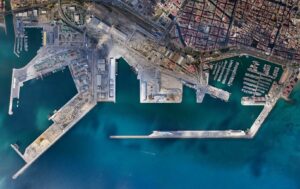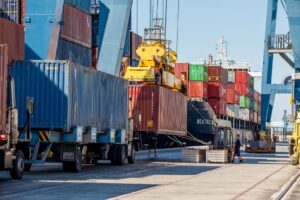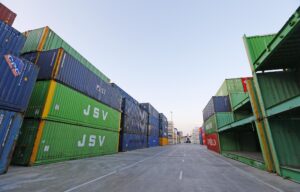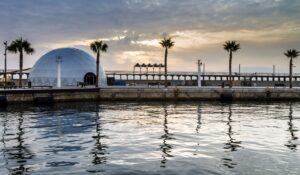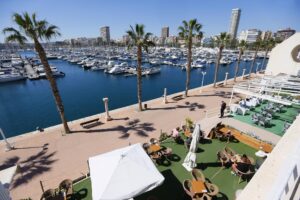-
Port Authority
-
Port Authority
Dependent on State Ports, it is the public body in charge of managing one of the 46 Spanish ports of general interest: the port of Alicante.
-
Port Authority
-
Port Community
-
Port Community
A comprehensive vision is essential to improve productivity and connectivity, the Port Community integrates all participants in logistics and business operations
-
Port Community
-
Deal
-
Deal
The port is essential in the logistical gear of the province, and of the state economy. We are always connected to offer you solutions.
-
Deal
-
Sustainable innovation
-
Sustainable innovation
The port is a space for open innovation, learning development, collaborative work and a cooking workshop
-
Sustainable innovation
-
Environment
-
Environment
One of the strategic priorities of the Port Authority is caring for the environment and optimizing port activities focused on sustainability
-
Environment
-
City port
-
City port
Alicante, a seafaring city, has grown through the centuries strengthened by its port. Its climate, the sun, places open to the city, to enjoy them, to walk them, to live them.
-
City port
Environment
The location of the Port of Alicante, inexorably joined to the city from which it takes its name, has been a determining factor for which the Port Authority has recently promoted an unprecedented environmental strategy.
That strategy has been reinforced by creating an environmental section, made up of highly qualified personnel, with the purpose of exploring actions aimed at reducing air polluting emissions as much as possible and creating mechanisms focused on sustainability.
Alicante Port Authority is committed to contributing to the achievement of the sustainable development goals included in the 2030 Agenda and, in particular, the initiatives agreed for the State Owned Port System as a whole.
In this regard, one of the greatest challenges we face centres on improving air quality in relation to the handling of solid bulk at the port’s esplanades at the quays of the exterior wharf. It is very important traffic for our port: in financial year 2019 it entailed 43% of total goods, measured in tonnes.
We have also incentivised private investment being allocated to environmental protection and have promoted rail use as a method to reduce CO2 emissions.
We have also committed to 100% renewable energy, creating upgrade projects on our power grid in order to be more efficient, providing facilities with LED lighting and expanding our photovoltaic installation.
The Port of Alicante continues to advance in having an appropriate characterisation of all the environmental variables within its sphere of management, water quality being another priority goal with regard to environmental control and follow-up.
In short, we are committed to the challenges set by the 2030 Agenda for Sustainable Development, and we will take the necessary steps so that the port of Alicante contributes to their achievement.

